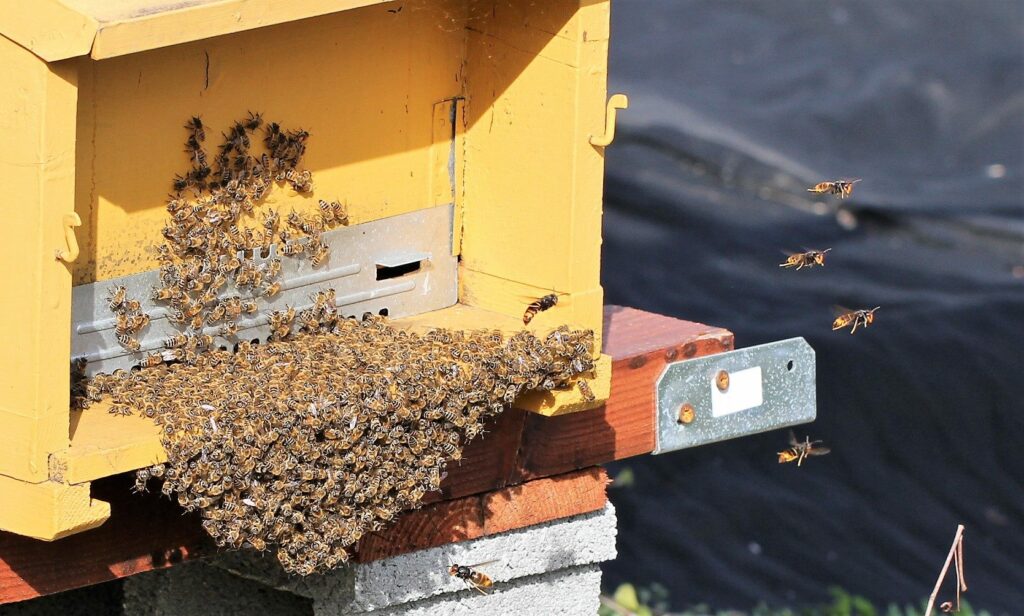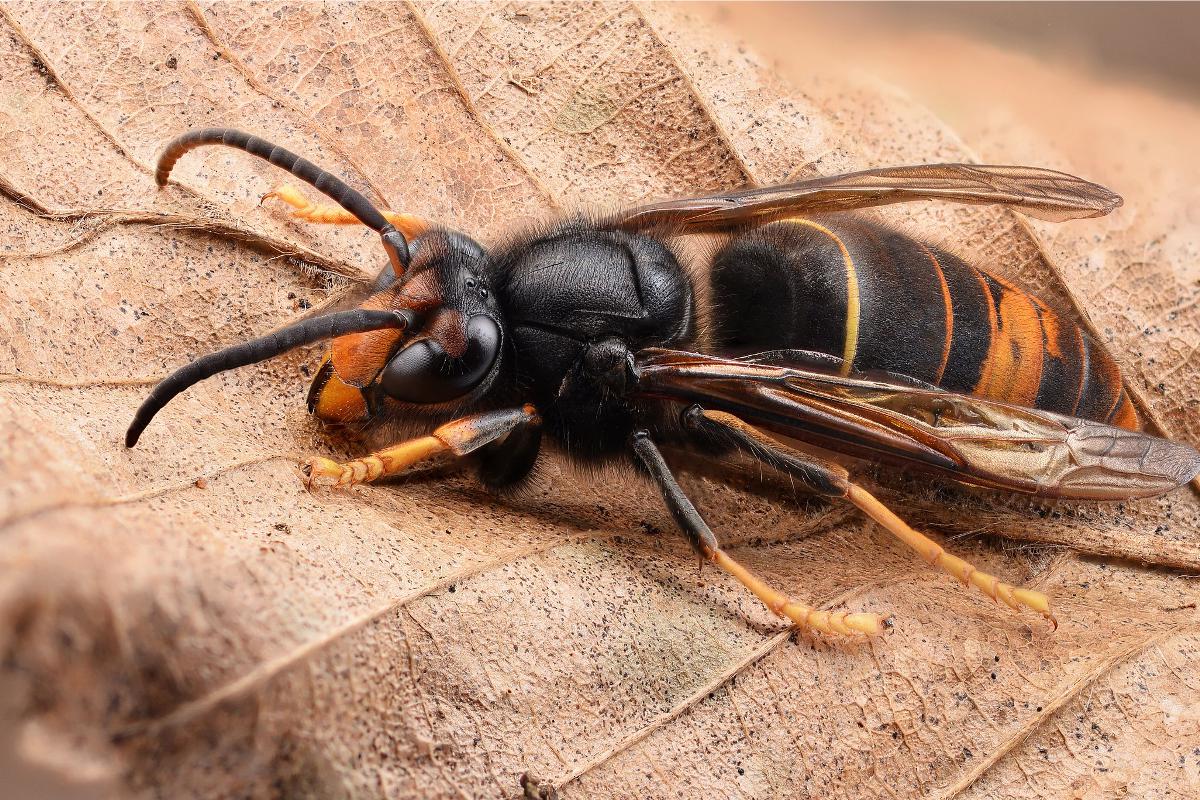Vespa velutina, also known as the Asian hornet, is a species of wasp native to Southeast Asia.
Characteristics of Vespa velutina
Physical appearance
Vespa velutina is a relatively large hornet, with a length ranging from 17 to 32 millimeters. It has a dark body, predominantly black or dark brown, with yellow bands on the abdomen. The head is black with a yellow face. The legs are dark with yellow tips, which is a distinguishing characteristic compared to other wasps.
Behavior and habits
This species of wasp is particularly aggressive towards honeybees, which it preys upon. It builds large nests, often located in trees, buildings, or other high structures. Vespa velutina is also known for its ability to adapt to various environments, contributing to its spread.

Index
Spread of Vespa velutina
Origin and spread
Native to Southeast Asia, Vespa velutina was accidentally introduced to Europe in the early 2000s, presumably through the transport of goods. Since then, it has spread rapidly across various European countries, including France, Spain, Portugal, and Italy.
First report in Tuscany
In Tuscany, the first sighting of Vespa velutina was reported in 2017 in the municipality of Pietrasanta. Federico Cappa, a researcher from the Department of Biology at the University of Florence, studies Vespa velutina along with Professor Rita Cervo. The team collaborates with colleagues from the University of Pisa and CREA in Bologna, focusing their attention on this invasive alien hornet for several years.
Spread in the territory
Federico Cappa provides insight into the spread of Vespa velutina in Tuscany, stating that “from last autumn until the beginning of this year, over 400 nests have been reported in our region.” Fortunately, more than half of these nests have been neutralized thanks to the efforts of volunteers from beekeeping associations. Currently, the most infested provinces are Massa, Lucca, Pisa, and Livorno.
First report of Vespa velutina in Florence
At the end of 2023, the first Vespa velutina nest was found in the province of Florence, in Bargino. In the same area, apiaries have recently been found where the presence of Vespa velutina has been confirmed, indicating a concerning spread of this invasive hornet.
Expansion to Grosseto
In November 2023, Vespa velutina was also reported in Grosseto. However, no nests have been found in this province so far. This suggests that the species is in an expansion phase and requires continuous monitoring and rapid interventions to prevent further proliferation.
Collaborations and interventions
The work of the research team at the University of Florence, in collaboration with other institutions, is crucial for monitoring and combating the spread of Vespa velutina. Timely reports and nest neutralization actions, often thanks to the efforts of volunteers from beekeeping associations, are essential to contain the impact of this invasive hornet on biodiversity and beekeeping in the region.

Vespa velutina and the Danger to Bees
Specialized predator
Vespa velutina, also known as the Asian hornet, poses a serious threat to bees, particularly the honeybee. This hornet is a specialized predator that attacks bees to obtain the protein-rich food necessary to feed its larvae.
Predation cycle
Vespa velutina colonies require large amounts of protein-rich food from late summer to early autumn. Consequently, the hornets target apiaries, where they can prey on a significant number of bees. Studies indicate that a single Vespa velutina nest can consume over 11 kilograms of insect biomass, mostly bees, from spring to autumn.
Impact on biodiversity
The predatory activity of Vespa velutina not only decimates honeybee populations but also poses a significant threat to biodiversity. Each year, thousands of beneficial insects risk becoming prey to these hornets. The decline in populations of bees and other pollinating insects can lead to a depletion of native biodiversity, with negative repercussions on the ecosystem.
Consequences for beekeeping
The decline in honeybee populations due to Vespa velutina predation has severe consequences for beekeeping. Honeybees are essential for honey production and the pollination of many agricultural crops. The loss of bees due to Vespa velutina can therefore harm the agricultural economy and reduce the availability of agricultural products that depend on pollination.
Monitoring and interventions
To mitigate the impact of Vespa velutina, constant monitoring and timely interventions are essential. Reporting and neutralizing nests, often thanks to the efforts of volunteers from beekeeping associations, are crucial to contain the spread of this invasive hornet. Collaboration between researchers, beekeepers, and institutions is fundamental to developing effective strategies for managing and controlling Vespa velutina.







